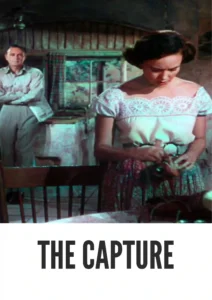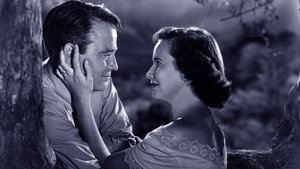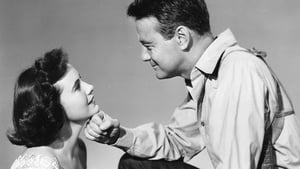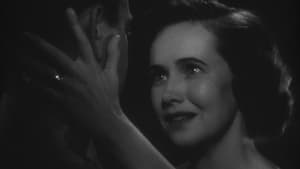Contact: info@alwanfilm.com
Video Sources 0 Views
- The Capture


Synopsis
Table of Contents
ToggleReview: The Capture 1950 Colorized – A Tense Psychological Drama

Introduction
The Capture, released in 1950, is a gripping psychological drama directed by John Sturges. This film is renowned for its tense atmosphere, compelling storyline, and standout performances. In this review, we’ll delve into the captivating world of The Capture and its lasting impact on cinema.
Check The Full Colorized Movies List
Check Our Colorized Movies Trailer Channel
Understanding The Capture 1950 Colorized: Director, Cast, and Genre
Directed by John Sturges, The Capture boasts a talented cast led by Lew Ayres, Teresa Wright, and Victor Jory. The film falls into the psychological drama genre, known for its exploration of the human psyche and complex character dynamics.
Exploring the World of The Capture 1950 Colorized: Plot and Characters
The Capture follows the story of Lin Vanner, a wounded World War II veteran who returns to his hometown seeking solace and redemption. However, his plans are derailed when he becomes entangled in a web of deceit and betrayal, leading to a tense cat-and-mouse game with devastating consequences. As Lin grapples with his inner demons and struggles to uncover the truth, he must confront the darkest aspects of human nature in order to find redemption.
The Art of Film Colorization
While The Capture was originally filmed in black and white, its early colorized version adds a new layer of depth to its atmospheric visuals. The colorization process enhances the film’s moody atmosphere and captures the nuances of its characters with striking clarity.
Early Colored Films: A Brief History
The history of early colored films is marked by innovation and experimentation as filmmakers sought to enhance the visual appeal of their movies. From hand-tinted frames to pioneering technicolor processes, the evolution of colorization techniques transformed the cinematic landscape, offering audiences a new way to experience the emotional depth and intensity of psychological dramas.
The Capture (1950) and Its Early Colored Version
The decision to release The Capture in a colorized format was made with the intention of immersing audiences in the atmospheric beauty of its cinematography and enhancing the film’s visual impact. While some purists may prefer the original black and white version, the early colorized edition of The Capture adds a new layer of depth to its moody atmosphere and captures the emotional complexity of its characters with breathtaking clarity.
The Debate Over Film Colorization
The debate over film colorization continues to divide audiences and industry professionals alike. While some argue that colorization breathes new life into classic films and makes them more accessible to modern audiences, others maintain that it compromises the artistic integrity of the original work. As technology advances and filmmaking techniques evolve, the debate over colorization remains a topic of ongoing discussion within the film community.
Examining The Capture (1950) as an Early Colored Film
Viewing The Capture in its early colorized iteration offers audiences a fresh perspective on its atmospheric beauty and emotional depth. The colorization process enhances the film’s moody atmosphere and captures the psychological complexity of its characters with stunning clarity. As viewers are drawn into Lin Vanner’s harrowing journey of redemption, they are treated to a visual feast that immerses them in the emotional intensity of the story.
Influence and Legacy: The Capture 1950 Colorized’s Impact on Cinema
The Capture is widely regarded as a landmark film in the psychological drama genre that continues to influence filmmakers and inspire new generations of cinephiles. Its tense atmosphere, compelling storyline, and standout performances have left an indelible mark on cinema, shaping the way psychological dramas are made and appreciated to this day.
Director’s Cinematic Legacy: Beyond The Capture 1950 Colorized
John Sturges’s directorial legacy extends far beyond The Capture, encompassing a diverse body of work that includes acclaimed films such as The Great Escape and Bad Day at Black Rock. As one of the most respected filmmakers of his generation, Sturges was known for his ability to craft compelling narratives that explored the complexities of the human condition with depth and nuance. The Capture stands as a testament to his talent and creativity, solidifying his reputation as one of the great auteurs of classic Hollywood cinema.
Themes Explored in The Capture 1950 Colorized
At its core, The Capture explores themes of redemption, betrayal, and the search for inner peace in the aftermath of war. Through its tense atmosphere and compelling storyline, the film offers a nuanced portrayal of the human psyche, challenging viewers to confront their own beliefs about morality and justice as they navigate Lin Vanner’s harrowing journey.
Reception and Controversy Surrounding The Capture 1950 Colorized
Upon its release, The Capture received widespread critical acclaim for its tense atmosphere, compelling storyline, and standout performances. While the decision to release the film in a colorized format sparked debate among purists, its enduring popularity has cemented its status as a timeless classic of the psychological drama genre.
Where to Watch The Capture 1950 Colorized Online
For those eager to experience The Capture for themselves, the film is readily available on popular streaming platforms such as Amazon Prime Video, Google Play Movies, and iTunes. Whether viewed in its original black and white format or its early colorized iteration, The Capture offers a cinematic experience that is both gripping and visually stunning.
FAQs About The Capture 1950 Colorized
1. Is The Capture based on a true story?
No, The Capture is a fictional film that explores the psychological toll of war and the search for redemption in the aftermath of conflict. While the film’s storyline may draw inspiration from real-life events, its characters and plot are works of fiction.
2. Who starred in The Capture?
The Capture stars Lew Ayres in the role of Lin Vanner, a wounded World War II veteran struggling to find peace in the aftermath of battle. He is supported by Teresa Wright, who delivers a memorable performance as his love interest, and Victor Jory, who portrays the enigmatic Sheriff.
3. What is the central message of The Capture?
At its core, The Capture explores the human capacity for redemption and the search for inner peace in the aftermath of war. Through its tense atmosphere and compelling storyline, the film offers a nuanced portrayal of the psychological toll of conflict, challenging viewers to confront their own beliefs about morality and justice as they navigate Lin Vanner’s harrowing journey.
4. Why was The Capture released in a colorized format?
The decision to release The Capture in a colorized format was made with the intention of immersing audiences in the atmospheric beauty of its cinematography and enhancing the film’s visual impact. While some purists may prefer the original black and white version, the early colorized edition of The Capture adds a new layer of depth to its moody atmosphere and captures the emotional complexity of its characters with breathtaking clarity.
5. What is the legacy of The Capture?
The Capture is widely regarded as a landmark film in the psychological drama genre that continues to captivate audiences with its tense atmosphere, compelling storyline, and standout performances. Its exploration of themes such as redemption, betrayal, and the search for inner peace has left an indelible mark on cinema, inspiring filmmakers and audiences alike for generations to come.
6. Are there any sequels or remakes of The Capture?
No, there have been no official sequels or remakes of The Capture. However, the film’s enduring popularity has inspired countless reinterpretations and homages in various media. Nonetheless, none have captured the tense atmosphere and emotional depth of the original 1950 classic.
7. Where can I watch The Capture online?
For those eager to experience The Capture for themselves, the film is readily available on popular streaming platforms such as Amazon Prime Video, Google Play Movies, and iTunes. Whether viewed in its original black and white format or its early colorized iteration, The Capture offers a cinematic experience that is both gripping and visually stunning.
Conclusion
In conclusion, The Capture (1950) stands as a gripping psychological drama that continues to captivate audiences with its tense atmosphere, compelling storyline, and standout performances. Whether viewed in its original black and white format or its early colorized iteration, John Sturges’s insightful direction and the stellar performances of the cast offer a cinematic experience that is both gripping and visually stunning. As viewers are drawn into Lin Vanner’s harrowing journey of redemption, they are treated to a visceral exploration of the human psyche that challenges their beliefs about morality and justice. The Capture remains a timeless classic that continues to enthrall and inspire audiences around the world.













